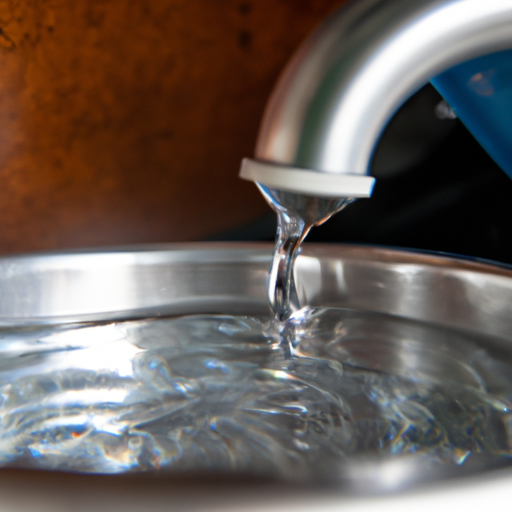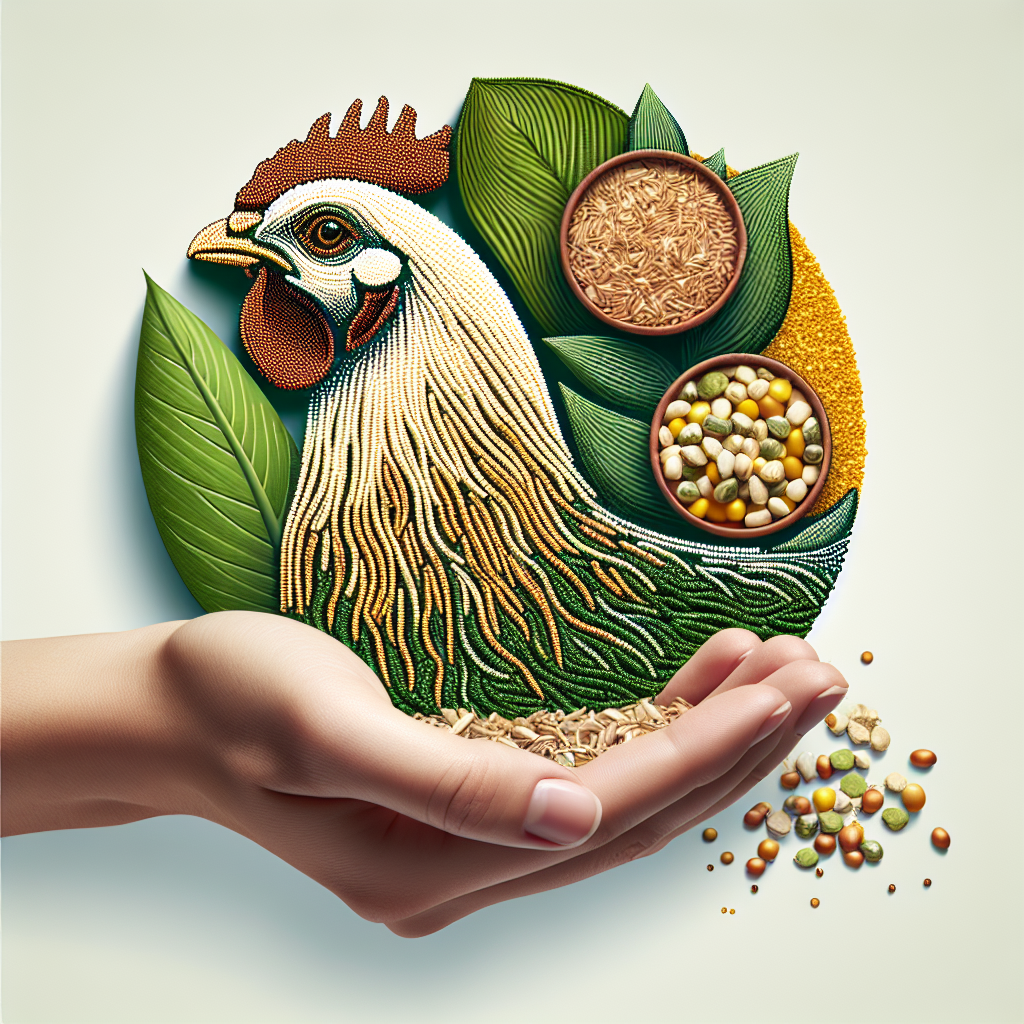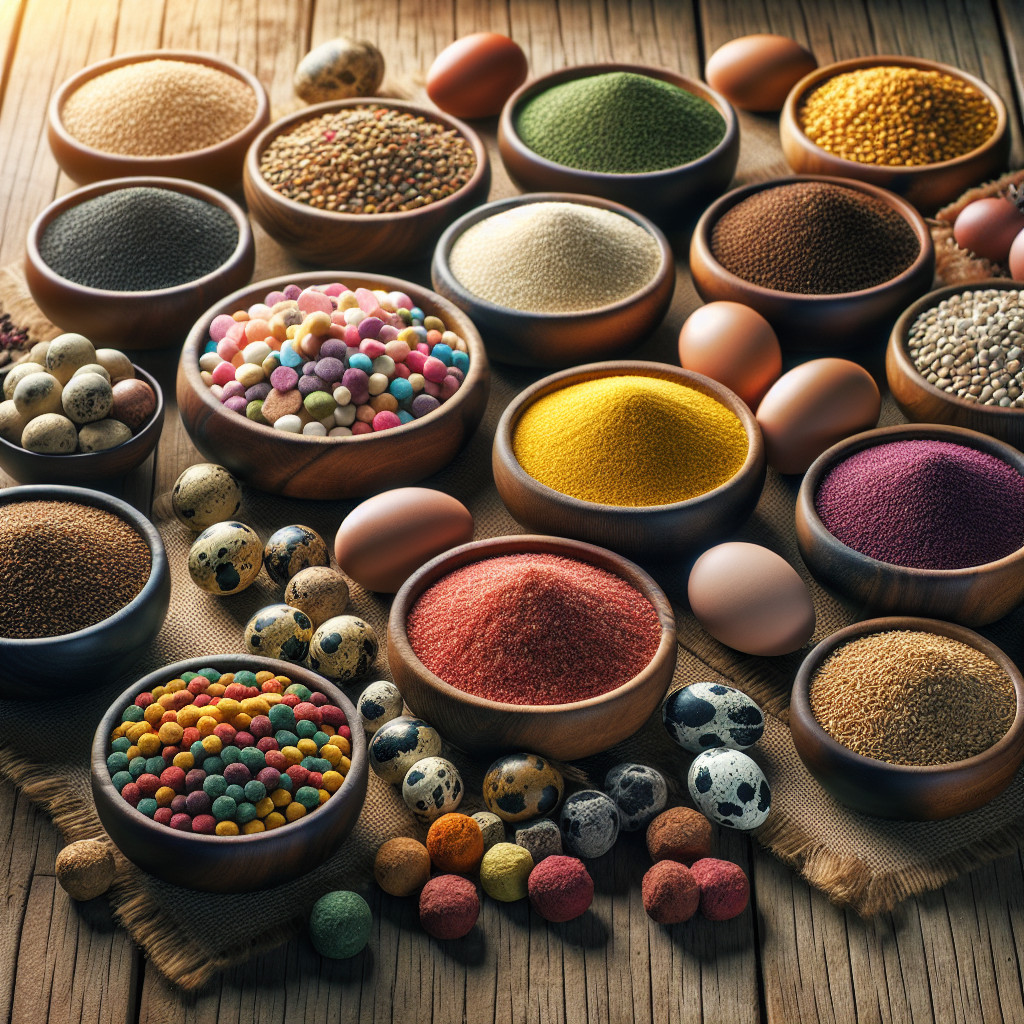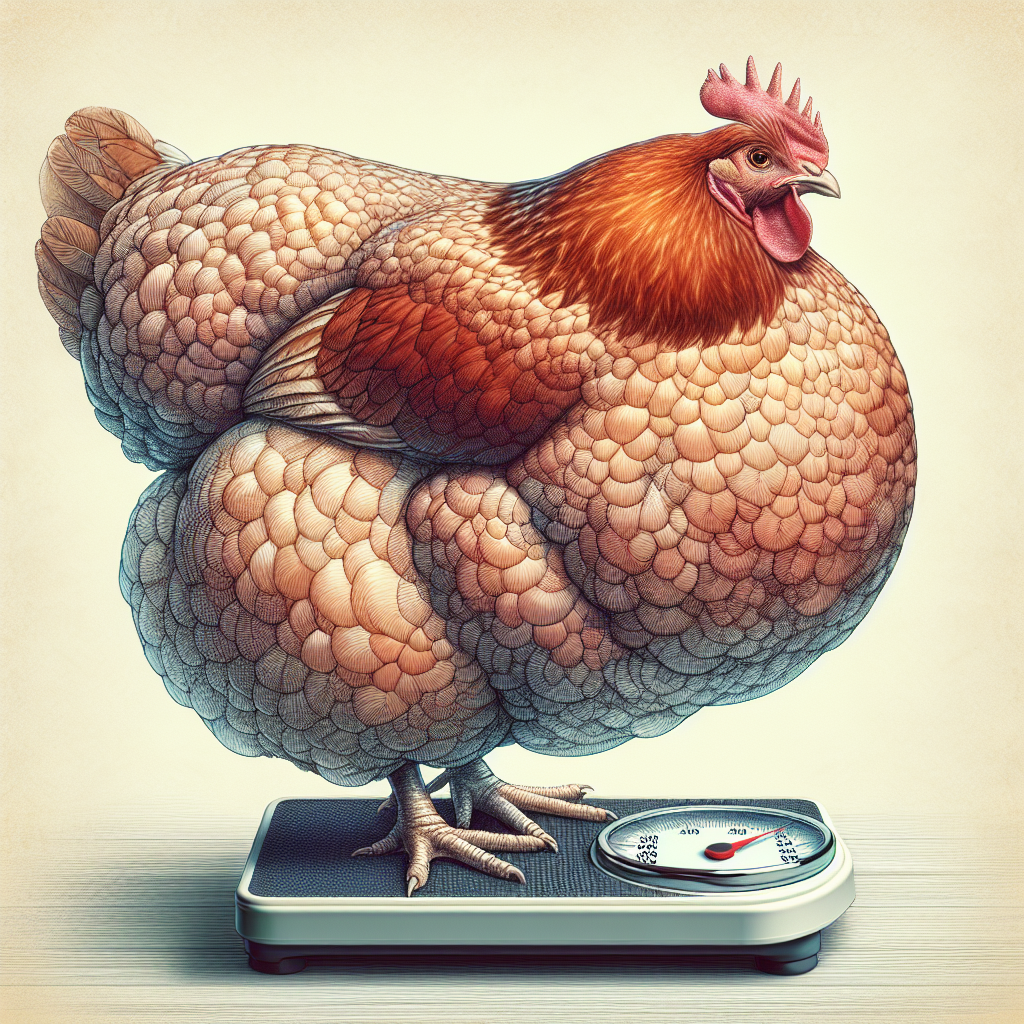If you’re a proud chicken owner, you may be wondering how much water your feathered friends need each day and how to ensure its quality. Just like humans, chickens rely on water for their overall well-being and survival. While the exact amount of water they need can vary depending on various factors, it is essential to provide them with a constant supply of clean and fresh water. In this article, we will explore the importance of water for chickens, discuss the quantity they require daily, and provide tips on ensuring its quality to keep your flock healthy and happy.
Understanding the Water Requirements of Chickens
Chickens, like all living creatures, depend on water for their survival. Water plays a vital role in various physiological processes within their bodies, such as digestion, circulation, temperature regulation, and waste elimination. As a responsible chicken owner, it is crucial to understand the factors affecting water consumption, recommended daily water intake, and the effects of inadequate water supply.
Factors Affecting Water Consumption
Several factors can influence the amount of water chickens consume on a daily basis. These factors include the age and size of the birds, ambient temperature and humidity, feed composition, and egg production. Young chicks and growing birds require more water compared to adult chickens. In hot weather, chickens tend to drink more water to regulate their body temperature. Additionally, a diet high in dry feed necessitates a greater intake of water.
Recommended Daily Water Intake
On average, chickens require approximately one-half to one full cup of water per bird per day. However, this estimation may vary depending on the factors mentioned earlier. Adult chickens typically consume between 0.25 and 0.5 gallons of water daily, while growing birds may double this amount. Egg-laying hens have higher water requirements due to the production of eggs.
Effects of Inadequate Water Supply
Insufficient water supply can have detrimental effects on the health and productivity of chickens. Dehydration is a primary concern and can lead to reduced egg production, poor eggshell quality, and decreased feed intake. Chickens experiencing water scarcity may also become stressed, leading to a weakened immune system, reduced growth, and increased susceptibility to diseases. It is therefore essential to provide a sufficient and consistent water supply to ensure the well-being of your flock.
Providing Clean and Fresh Water to Chickens
Water quality is equally important as the quantity of water provided to chickens. Clean and fresh water is crucial for maintaining optimal flock health and preventing various waterborne diseases. Understanding the importance of water quality, sources of contamination, and implementing effective methods to ensure a clean water supply is essential for poultry owners.
Importance of Water Quality
Water quality directly impacts the health and performance of chickens. Contaminated water can introduce harmful bacteria, parasites, heavy metals, and chemical toxins into the birds’ systems. Poor water quality can lead to various health issues, including digestive problems, impaired nutrient absorption, decreased immunity, and reduced egg production. Providing clean and fresh water is essential for promoting the overall well-being of your flock.
Sources of Water Contamination
Water sources for chickens can become contaminated through various means. Some common sources of water contamination include fecal matter, dirt, organic matter, algae, stagnant water, and exposure to pesticides and chemicals. Additionally, water may become polluted through unclean water containers, inadequate water treatment, or cross-contamination from other animal enclosures. It is crucial to identify potential sources of contamination and take necessary measures to ensure the purity of the water provided to chickens.
Methods to Ensure Clean Water Supply
To maintain a clean water supply, several measures can be implemented. Firstly, regularly inspect and clean water containers to prevent the accumulation of debris and organic matter. It is also advisable to use sturdy containers that are resistant to cracking, rusting, or leaking. Providing shade for water sources can prevent the growth of algae and keep the water cooler. Additionally, water treatment methods, such as filtration, chlorination, or the use of natural additives, can be employed to enhance water quality and reduce the risk of contamination.
Watering Systems for Chickens
Now that we understand the importance of water quality, let’s explore different watering systems available for chickens. Traditional watering methods and automatic watering systems offer various advantages and considerations depending on the size of your flock, your resources, and convenience.
Traditional Watering Methods
Traditional watering methods typically involve the use of waterers or troughs that are manually filled and maintained. These can be affordable and straightforward options for small flocks. Common examples include open containers or shallow pans. However, traditional watering methods may require more frequent cleaning and monitoring to prevent water contamination or spillage.
Automatic Watering Systems
Automatic watering systems offer convenience and efficiency, particularly for larger flocks. These systems utilize valves, nipples, cups, or bell drinkers to provide a constant supply of water. Automatic systems reduce the risk of contamination and ensure a consistent water supply. They also minimize water waste and labor required for filling and cleaning water containers. However, automatic watering systems may require initial investment and regular maintenance for optimal functionality.
Choosing the Right Watering System
When selecting a watering system for your chickens, consider factors such as flock size, budget, ease of use, and maintenance requirements. Ensure that the chosen system meets the water requirements of your flock while maintaining water quality and minimizing waste. Consulting with experienced poultry owners or professionals can provide valuable guidance in choosing the most suitable watering system for your specific needs.
Precautions for Watering Chickens
In addition to providing clean water through appropriate watering systems, certain precautions should be taken to ensure the health and safety of your flock during the watering process.
Preventing Water Spillage and Waste
To prevent water spillage and waste, it is essential to ensure that water containers are securely positioned and installed. Containers should be at an appropriate height to avoid chickens scratching or defecating into the water. Regularly check for leaks or cracks in water containers and promptly replace or repair them. Proper positioning and maintenance of waterers can significantly reduce water spillage and prevent unnecessary wastage.
Avoiding Frozen Water in Winter
In colder climates, frozen water can pose a significant challenge. Freezing temperatures can result in limited access to water for chickens, leading to dehydration and other health issues. To prevent frozen water, consider using heated waterers or heated bases for water containers. It is also advisable to insulate water containers or place them in protected areas to minimize exposure to freezing temperatures.
Protecting Water from Pests and Diseases
Water sources are attractive to pests such as rodents, birds, and mosquitoes, which can contaminate the water and spread diseases. To protect water from such pests, use secure lids or covers for containers. Regularly inspect the surrounding area for potential entry points and block them. Proper maintenance and cleaning of water containers can also help prevent the growth of harmful bacteria or parasites.
Monitoring and Maintaining Water Supply
To ensure the continuous provision of clean and sufficient water to your chickens, regular monitoring and maintenance are essential.
Regularly Checking Waterers
Inspect water containers daily to ensure they are full, clean, and functioning correctly. Check for leaks, blockages, or signs of contamination. Regularly clean waterers and remove any debris or organic matter that may accumulate. Monitoring waterers regularly allows for prompt identification and resolution of any issues that may affect the water supply.
Cleaning and Disinfecting Water Containers
Cleaning and disinfecting water containers at regular intervals is crucial to prevent the buildup of bacteria, algae, and other contaminants. Use warm, soapy water and a scrub brush to remove dirt and residues. Rinse thoroughly to remove all traces of soap and disinfect with an appropriate poultry-friendly disinfectant. Proper cleaning and disinfection methods help maintain water quality and minimize the risk of diseases.
Ensuring Sufficient Water Availability
Water should be available to chickens at all times. Regularly check water levels and refill containers as necessary. Consider the size and number of water containers to accommodate the requirements of your flock. If more than one water container is provided, ensure that they are distributed evenly to minimize competition or overcrowding. Continuously monitor water consumption patterns to identify any abnormality that may indicate health issues or inadequate supply.
Potential Health Issues from Poor Water Quality
Poor water quality can lead to various health issues in chickens, highlighting the importance of providing clean and fresh water.
Dehydration and Heat Stress
Inadequate water intake can cause dehydration, particularly during hot weather or periods of high activity. Dehydration can lead to heat stress, reduced egg production, weight loss, and even death. Ensuring a consistent and sufficient water supply is crucial to prevent dehydration-related health issues.
Digestive Problems and Nutrient Absorption
Contaminated water can introduce harmful bacteria or parasites into the chickens’ digestive system, leading to digestive problems. Chickens may experience diarrhea, reduced appetite, nutrient deficiencies, or impaired nutrient absorption. Clean water is vital to maintain the chickens’ digestive health and optimize their nutrient intake.
Increased Susceptibility to Diseases
Poor water quality compromises the chickens’ immune system, making them more susceptible to diseases. Bacteria, viruses, and parasites present in contaminated water can cause various infections and illnesses. Providing clean water is an important preventive measure to reduce the risk of disease transmission and maintain the overall health of your flock.
Importance of Hydration for Chicken Productivity
Adequate hydration has a significant impact on the productivity and overall well-being of chickens. Water intake influences various aspects of chicken production, including egg production and meat quality.
Effect of Proper Hydration on Egg Production
Water is essential for the formation and development of eggs. Inadequate hydration can result in reduced egg production, smaller or misshapen eggs, and poor eggshell quality. Ensuring a consistent and sufficient supply of clean water is crucial for optimal egg production in your flock.
Influence of Water Intake on Meat Quality
Water intake also affects the quality of meat produced by chickens. Proper hydration contributes to the development of well-formed muscles and tissues, resulting in better meat quality and texture. Inadequate water intake can lead to reduced meat yield, tough meat, and lower overall meat quality. Hydration plays a significant role in maximizing the potential of your flock for meat production.
Promoting Overall Health and Well-being
Hydration is essential for the overall health and well-being of chickens. Proper water intake supports the birds’ immune system, digestion, thermoregulation, and overall physiological functions. Hydrated chickens are more active, have a better appetite, and exhibit healthier physical conditions. By prioritizing hydration, you are promoting the overall health and welfare of your flock.
Natural Supplements for Watering Chickens
In addition to providing clean water, natural supplements can be added to enhance the health and immunity of your flock.
Adding Electrolytes and Vitamins to Water
Electrolyte and vitamin supplements added to the water can support hydration and provide additional nutrients to chickens. These supplements help replenish essential electrolytes lost during heat stress, illness, or other physiological processes. They also promote vitality, improve immune function, and aid in overall flock health. Care should be taken to follow manufacturer instructions and use appropriate poultry-specific supplements.
Benefits of Herbal Infusions and Tea
Herbal infusions and tea can offer additional health benefits for chickens. Certain herbs, such as chamomile, mint, or calendula, possess antimicrobial, anti-inflammatory, or calming properties. Herbal infusions or tea can be added to water as a natural alternative to promote digestive health, reduce stress, and support the birds’ immune system. However, it is important to consult with a poultry veterinarian or expert to ensure the safe and appropriate use of herbal additives.
Using Natural Additives to Boost Immunity
Natural additives, such as apple cider vinegar or garlic, can be added to water to boost the chickens’ immune system. These additives possess antimicrobial and immune-stimulating properties, helping to reduce the risk of infections and diseases. Natural additives offer a holistic approach to maintaining the health and immunity of your flock, complementing a clean and fresh water supply.
Emergency Watering Strategies
In emergency situations such as water shortages or disruptions, it is essential to have contingency plans in place to ensure your chickens’ hydration and well-being.
Preparing for Water Shortages or Disruptions
Anticipating potential water shortages or disruptions is crucial for emergency planning. Keep backup water containers or storage systems ready to ensure a continuous water supply. Depending on your location and circumstances, consider alternative water sources or methods, such as rainwater collection or water delivery services. Planning ahead allows you to respond effectively in emergency situations.
Emergency Water Sources for Chickens
If faced with a water shortage, alternative water sources may be utilized for your chickens. These include water from emergency water trucks, nearby rivers, wells, or even neighboring farms. However, it is important to ensure the suitability and safety of these water sources. Test water quality and consider any potential risks or contaminants that may affect your flock’s health.
Conserving and Rationing Water during Scarcity
During water scarcity, it is crucial to implement water conservation and rationing strategies. Minimize water wastage by ensuring water containers are properly sealed, positioned, and maintained. Evaluate the necessity of non-essential uses of water, such as cleaning or watering gardens. Rationing water through controlled distribution can also help ensure the water supply lasts until normal conditions are restored.
Conclusion
Understanding the water requirements of chickens is essential for their health, productivity, and overall well-being. Providing clean and fresh water through appropriate watering systems, regularly monitoring and maintaining the water supply, and implementing necessary precautions are crucial responsibilities for poultry owners. Hydration plays a vital role in maintaining optimal chicken health and preventing various health issues associated with poor water quality or inadequate water supply. By prioritizing water quality, hygiene, and hydration, you are contributing to the overall success and welfare of your chicken flock.




